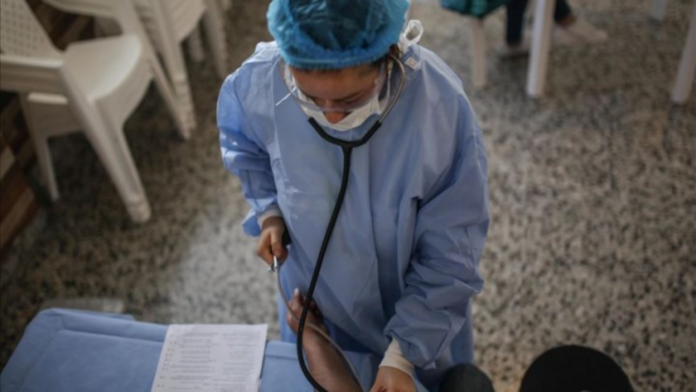The chairperson of the House Committee on Civil Service and Professional Regulation on Tuesday backed Health Secretary Ted Herbosa’s plan to have an undersecretary appointed as Chief Nursing Officer (CNO) and to create a National Nursing Advisory Council (NNAC).
In a statement, committee chair and Bohol Representative Kristine Tutor said the CNO and NNAC can be effective components in the policy structure to make sure the concerns of nurses in both the public and private sectors are effectively given the necessary focus and action, particularly regarding their salaries.
“Among the first priorities of the CNO and NNAC would be to address the wage and compensation issues in the public and private healthcare sectors,” Tutor said.
Tutor said the Department of Health could recommend to the Department of Labor and Employment a minimum wage and compensation system to address the bulk of working condition issues of nurses in the private sector, noting that their wages, benefits and working conditions are way below those of their counterparts in public hospitals.
“There are precedents for having a different wage structure for specialized workers. The wage and benefits policies for private nurses can be designed to bridge the gap with their public sector counterparts through phased implementation covering 3 to 7 years. This way, there is an adjustment period or transition to which the private hospitals and clinics can adjust,” she said.
She said a wage subsidy component can be built into the minimum wage and compensation system for private sector nurses.
“Initially, the wage subsidy could cover a portion of the minimum wage rate because they are performing a public health function, and that could serve as basis for the wage subsidy, much in the same way as the other service contracting programs the national government already has,” she said.
She suggested that the Small Business Corporation could be tasked to have a concessional loan program that would cover 14th-month pay for the smaller private hospitals.
The Department of Health (DOH) is planning to establish a body to focus on the concerns of Filipino nurses, especially those considering leaving the country for better pay.
In a media briefing on Monday, Herbosa said he will issue a department administrative order for the creation of a National Nursing Advisory Council led by a de facto chief nursing officer whose function will be at the level of an undersecretary.
The members of the proposed council will be nurses from the private and public sectors, including heads of the Philippine Nurses Association, the Philippine Board of Nursing, and the Association of Nursing Service Administrators of the Philippines.
“So, we could always make them address all these issues not only the exam, but also life-work balance, and other reasons to motivate them to stay and fight the brain drain of Filipino nurses to other countries,” he said.
Herbosa added that he would also ask Congress to pass a law institutionalizing the appointment of the chief nursing officer.
Currently, the DOH needs about 4,500 nurses in its 70 hospitals nationwide.
Quezon City Representative Marvin Rillo, meanwhile, pushed for the immediate passage of his House Bill (HB) 5276 seeking to increase the entry-level monthly pay of government nurses to around PHP64,000.
He said bumping up the starting monthly pay for government nurses from PHP36,619 to PHP63,997, or raising their salaries six notches higher based on the Salary Standardization Law, would help retain nurses in Philippine public hospitals.
“Congress must quickly raise the basic salaries of our nurses here at home. This is the only way we can hold on to our nurses in public hospitals,” Rillo said. (PNA)


